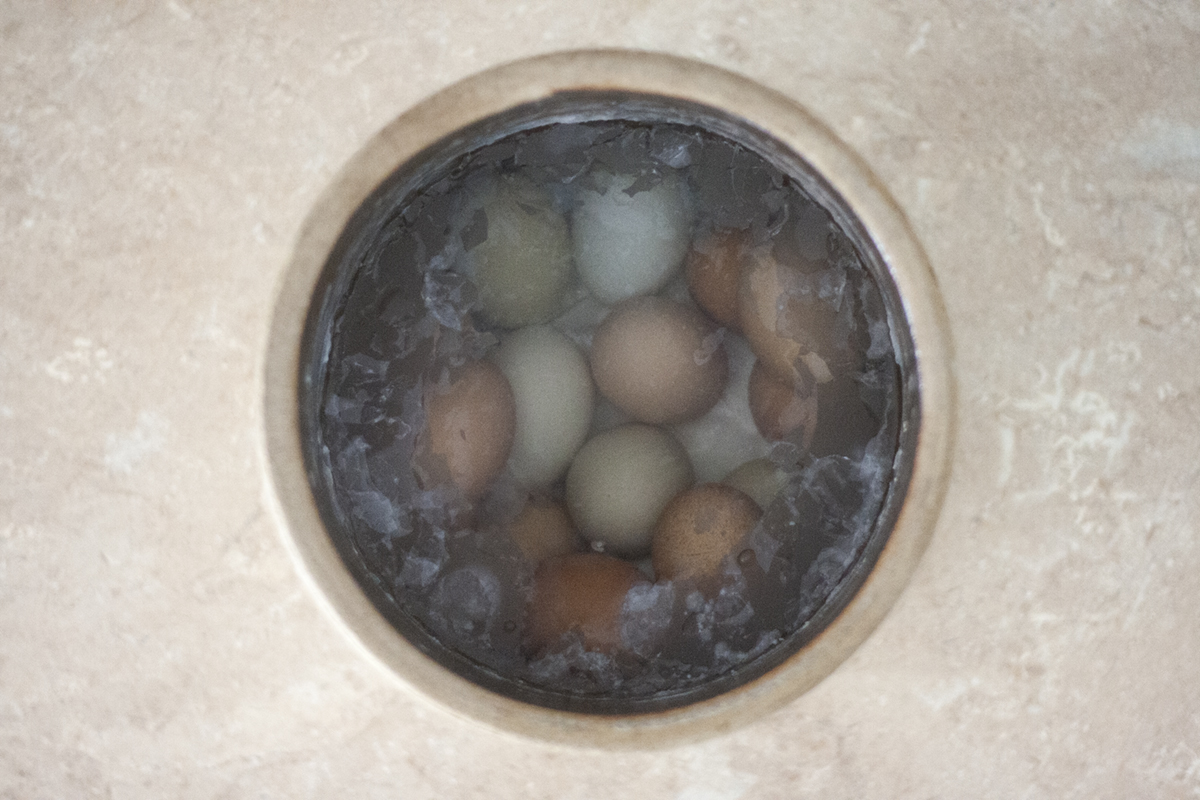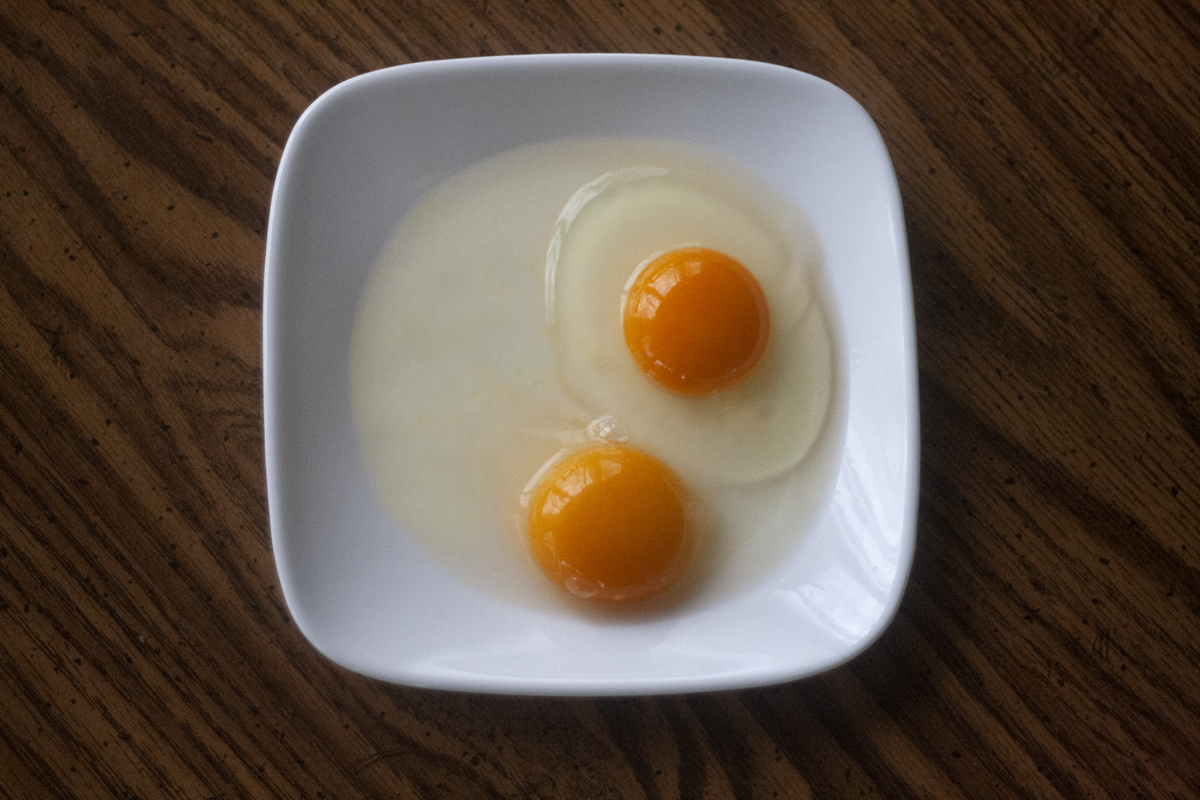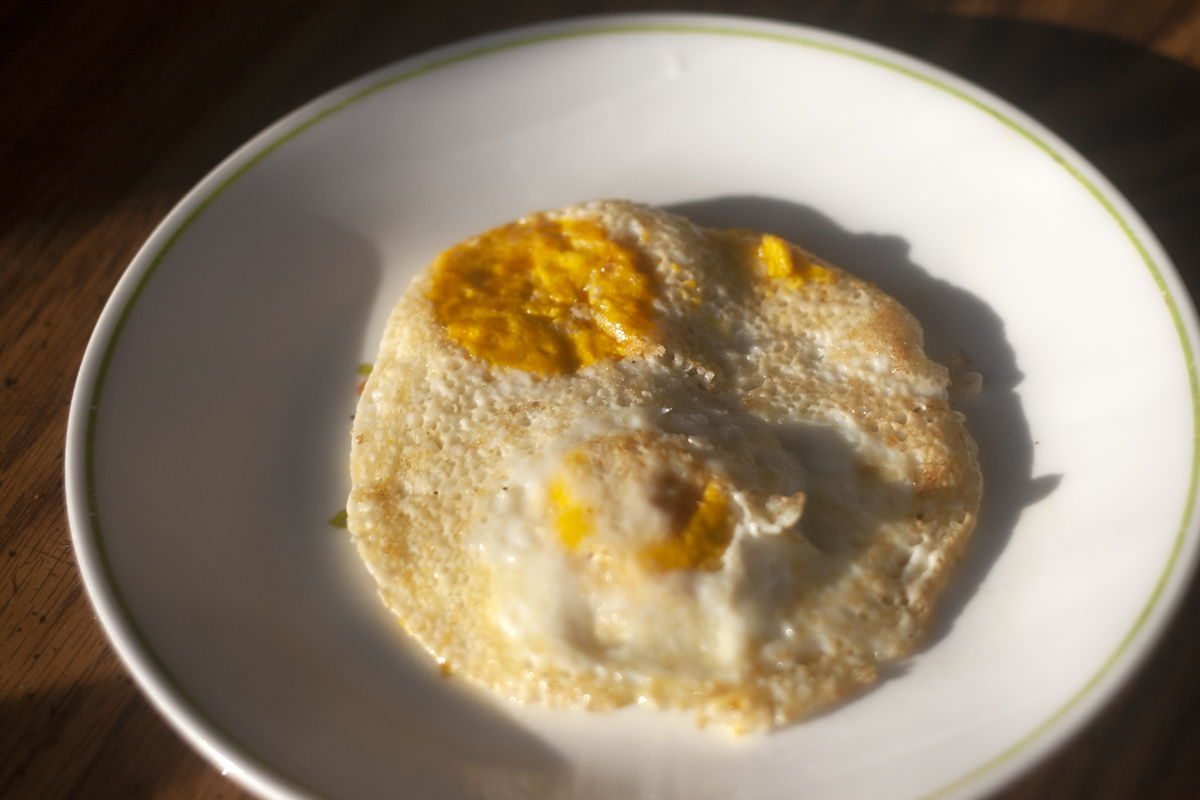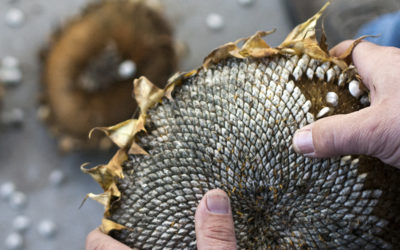Water Glassing Eggs
egg preservation methodBelieve me, I was just as skeptical as you are. Preserving eggs in a milky solution for how long? And then you expect me to eat said egg? I’m not even sure I like eggs that much.
Well I’m here to tell you, it works! We decided to test water glassing eggs as a preservation method, placing them in a crock on October 20th, 2019. And today, we pulled them out to find perfectly, consumable eggs.

crock of eggs in pickling lime solution for 1 year
So let’s get some facts straight. To water glass is to preserve using sodium silicate and often times commercial forms are mixed with potassium. This method is considered the most cost effective and chemically pure. However, when looking up how to water glass eggs you’ll commonly find people using lime, which is calcium hydroxide. You’ll find this lime called various things like slacked lime, hydrated lime or pickling lime.
I’m taking a wild guess that the transition to lime progressed over time. Sodium silicate may be chemically pure, but I’m sure the fact that its used as an industrial solution and bonding agent in things like cement, may freak some people out. While lime is a more common product found on the homestead from First Saturday Lime in your coop, to the pickling lime in your canning cupboard. Just a guess though…

raw top egg fresh from november 11, 2019, bottom egg placed in crock october 20, 2018
For my simple test, I used the pickling lime and small crock I already had on hand. For preserving larger quantities you can purchase hydrated lime at your local hardware store, and use a larger crock or a food grade 5 gallon bucket with lid. Find out how we pick-up free, food grade buckets in our maple syrup post here!
Mix Lime Water
In a clean crock, container or bucket mix your lime solution using a ratio of 1 ounce (by weight) pickling lime to 1 quart of water.
Place Eggs
Once your lime water is mixed, you’ll want to place clean, unwashed eggs into your container of choice point end down, just as you would in a egg carton. It’s important that you use clean unwashed eggs, with the bloom intact, meaning store bought eggs will not work for this preservation method. If you purchase your eggs from a local farm or homestead, you can certainly ask for unwashed eggs.
Cover and Store
After all of your eggs have been carefully placed, your container needs covered to reduce evaporation. For my crock, I placed a piece of plastic wrap with a rubber band, then draped with a hand towel. For other food safe containers or buckets place a lid on top. Store your eggs in a cool, dark place. It’s important as with most preservation methods to avoid drastic temperature fluctuation and direct sunlight.

cooked top egg from october 20, 2018, bottom egg november 11, 2019
Now hurry up and wait! Throughout this preservation process I thought it was important to note there is no smell from the crock or eggs themselves. The eggs feel and look the same as a fresh egg. The longer we preserved them the waterier the whites, but the yolk impressively held it’s shape raw and cooked. Lastly, when it came down to the burning question of taste – there was no difference!
We found that eggs are best between 6-8 months, but we’ve successfully stored them for over a year. Water glassing eggs is the perfect preservation method to get you through the fall molt and desolate winter season. You can pull eggs from the solution at any time to consume. Simply rinse the lime water solution from them, crack and enjoy!
Have you tried the water glassing egg preservation method? Do you plan to? Let us know in the comments below!
Recently Published
Spring Chickens
The countdown to Spring is well underway for farmers, homesteaders and all those anticipating a new batch of chicks! If you’re new to raising baby chicks, most choose to purchase them in the Spring when temperatures begin to rise. This period makes brooding easiest...
A Letter To Our Homestead – 2018
Dear Homestead, Reflecting on 2018 is an arduous task. Our word of the year was coined early on as Mornicopia. It’s that weird place between mourning and coping -- you can read more about that here. In fact, I contemplated not writing our year end post, but it’s only...
Sunflower Season
The end of sunflower season unofficially marks fall for the Henstooth Homestead. We pull our sunflowers from the garden and prepare them for roasting, a treat we’ll enjoy into the following Spring! There are a million sunflower roasting recipes out there, and they all...




can you direct me to any information on why the eggs must be unwashed?
I understand what the “bloom” coating does for the eggs and that unwashed eggs can be stored for a time at room temperature – common in many countries outside the USA.
But, these eggs will be sealed from air by the solution in which they are stored – given this, is there a specific reason why washed eggs cannot/ should not be used in this method?
can you point me to any youtube videos that discuss this question?
thank you for your time.
Bob,
Thanks for reading! From my understanding, the bloom still does it’s natural job of protecting from bacteria and keeps the lime solution from being absorbed by the egg. I hope that helps!
Can you reuse the solution after a year .. we had our eggs in the solution for about 6 months can I reuse the like solution again or do I need to start fresh? …we have had it covered since getting the last egg.. somebody told me to boil it and then I could reuse it?
Hi Lauren! I always start fresh to ensure the ratios are correct. If you wanted to repurpose the solution, I’d be sure to add water if any has evaporated and whisk any lime that may have settled to the bottom. If there are any contaminants in the solution (dust, bugs, a broken egg, etc.) then I’d start fresh.
On water glassing eggs; I don’t have scale to weigh my lime. Can you tell me 0z measurements?
Carolyn, it is really important to weigh the lime. I would recommend picking up an inexpensive scale at your local grocery store.
How clean do the eggs need to be? I have ducks and they are always dirty…..about one in three will be “clean”…..meaning only a little smear of poop. Clean by duck standards, but is it enough.
Mary, ahh duck eggs are going to be a little tricky. I would try to remove as much of the debris and feces as possible. An egg brush or specialized egg wipes are great for this, as they keep the bloom intact!
We mixed up our lime and water then put the eggs in. After about 8 hours the mixture seems to have settled out with lime on the bottom and water on top. Is this normal, and ok?
Lindy, congratulations on your first water glassing! The settling is completely normal. If you continue to add eggs to the substance throughout the year you can always mix up a little more solution, add it and carefully swirl it around. Otherwise, I just let mine settle and made sure it was covered to reduce evaporation.
Can you be specific on name of hydrated lime? Is it the type s ? Can’t seem to find the answer.
Hi Susan! I used Mrs. Wages Pickling Lime because it’s what I had on hand. If you’re having a hard time finding just calcium hydroxide with no other additives, I would recommend starting with a pickling lime from the canning aisle at your local store.
Hi! I purchased some hydrated lime at the local hardware store. It was a huge bag of it. When I got home, I noticed it said “Type S” – Is that ok to use for water glassing eggs?
Kay, I would avoid using this lime as the “S” stands for special and does include other substances. I’m a little more cautious and would recommend sticking to a food-grade calcium hydroxide with no other additives or preservatives.
If it’s your first time, I would recommend using something like Mrs. Wages Pickling Lime – or a pickling lime from the canning aisle at your local store.
I stirred and stirred cold filtered water in the bucket then added eggs and like above comment it sunk to the bottom. When I watched Homesteading Family YouTube video on water glassing the eggs her water looks like milk, why doesn’t mine? I used Mrs. Wages pickling lime.
Hi Wendy! It all settles eventually. Mine was milky as well, but by the time I set all my eggs, it was already starting to clear.
Silly question maybe. If I preserve the eggs, but say in a month or so need eggs, can I just use the ones I’ve preserved? Or should I wait at least a certain amount of time? I’m not a huge egg fan but can get fresh farm eggs free from some neighbors. Thinking this will be a good idea but I only use 1 or 2 every so often. A carton usually goes bad before I can use them all. But if I can preserve 2 or 3 dozen then I’d get much more use out of them.
Makayla, not a silly question at all! In fact, I think it’s a great solution for you. There is no time frame you need to let them set. You can remove eggs at any time or as needed.
I just started water gassing eggs in August 2020. This morning I looked in my pantry and all of the glass gallon jars look beautiful but my 6th jar I did looks white and milky which is how they all would look if I swirled them. But I hadn’t moved this one. It doesn’t have a bad smell and I just ate 3 of the eggs. They don’t taste different but why would this one jar be milky cloudy and the others crystal clear practically with the lime more settled on the bottom? Do you have any thoughts on the matter?
Laura, very interesting! I wish I had a scientific explanation for this but unfortunately don’t. Could this jar be in a warmer location or access to sunlight? My only other suggestion if you’re concerned, is to remove the eggs to see if one towards the bottom may have cracked and is leaking its contents into your solution. Keep us posted on your findings!
Can you only use this process in fresh laid eggs? Not on store bought?
They do have to be fresh eggs with the bloom enacted. Store-bought eggs are washed, which removes that protective layer. If you don’t have chickens of your own, you can often reach out to local farmers or those that sell eggs and specifically request they be unwashed.